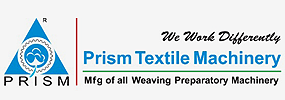ISO 14001:2015 (Environmental management system)
ISO 14001 is an environmental management standard that defines the environmental policy of an organization. This standard helps organizations to protect the environment, check pollution, and improve their overall environmental performance. ISO 14001 is a useful tool for an organization to step up from just maintaining regulatory compliance to an organization with improved productivity and enhanced competitive advantage.
ISO 14001 is applicable to any business that wishes to establish, implement, maintain and improve an environmental management system and conform to its stated environmental policy.
ISO 14001 is the perfect certification for companies seeking an internationally recognized environmental management system. This certification can help companies create a structure for managing environmental operations. ISO 14001 is applicable to all types and sizes of manufacturing and service operations throughout the world.
ISO 14001 specifies environmental requirements that the organization identifies as those which it can control and influence. It does not itself state specific environmental performance criteria. ISO 14001 is flexible - it is as applicable to both the small business and the multinational organization.
The extent of the application depends on factors like the environmental policy of the organization, the nature of its activities, products and services, the location and the conditions in which the company functions.
Benefits of ISO 14001
ISO 14001 was developed primarily to assist companies with a framework for better management control that can result in reducing their environmental impacts. In addition to improvements in performance, organizations can reap a number of economic benefits including higher conformance with legislative and regulatory requirements by adopting the ISO standard. By minimizing the risk of regulatory and environmental liability fines and improving an organization's efficiency, benefits can include a reduction in waste, consumption of resources, and operating costs. Secondly, as an internationally recognized standard, businesses operating in multiple locations across the globe can leverage their conformance to ISO 14001, eliminating the need for multiple registrations or certifications. Thirdly, there has been a push in the last decade by consumers for companies to adopt better internal controls, making the incorporation of ISO 14001 a smart approach for the long-term viability of businesses. This can provide them with a competitive advantage against companies that do not adopt the standard ). This in turn can have a positive impact on a company's asset value. It can lead to improved public perceptions of the business, placing them in a better position to operate in the international marketplace . The use of ISO 14001 can demonstrate an innovative and forward-thinking approach to customers and prospective employees. It can increase a business's access to new customers and business partners. In some markets it can potentially reduce public liability insurance costs. It can serve to reduce trade barriers between registered businesses. There is growing interest in including certification to ISO 14001 in tenders for public-private partnerships for infrastructure renewal.














